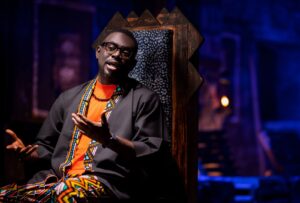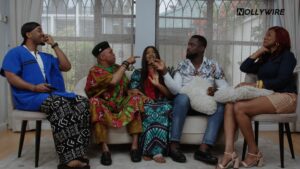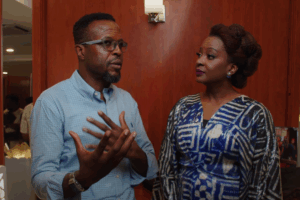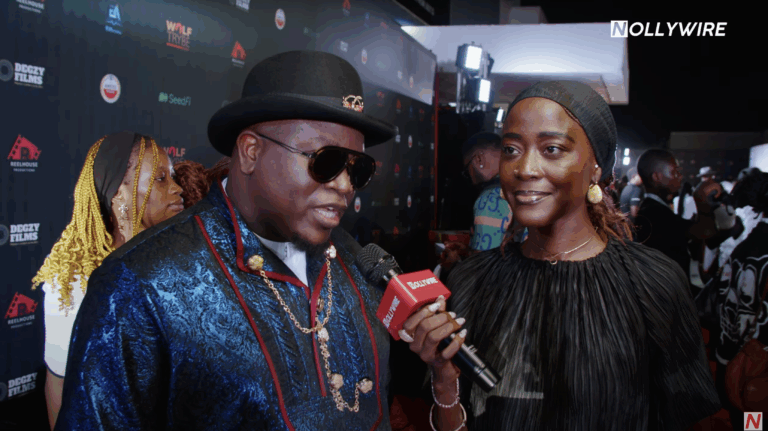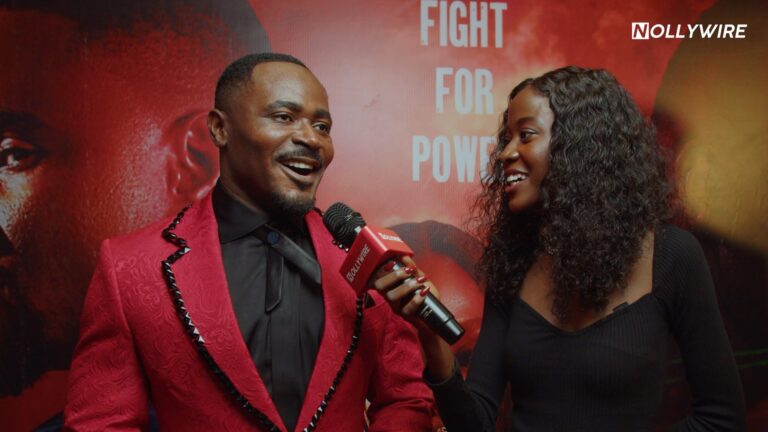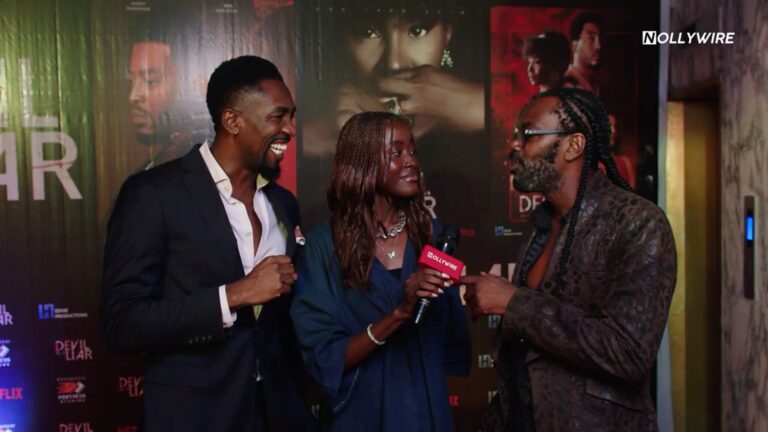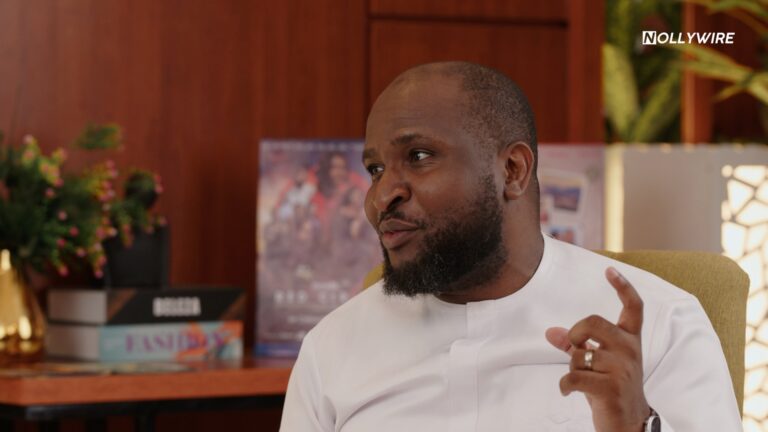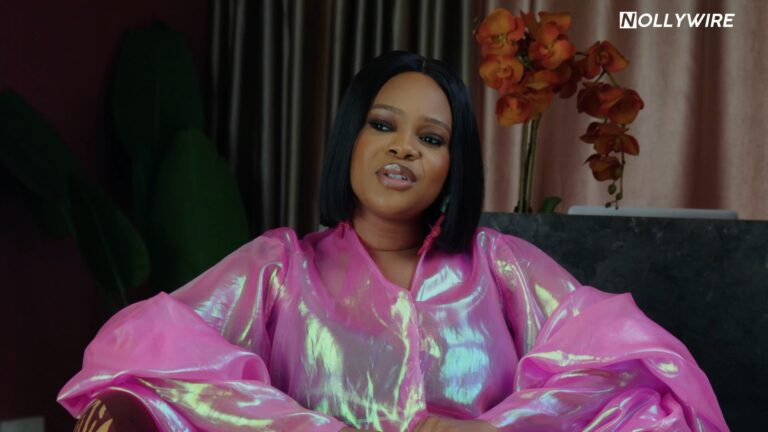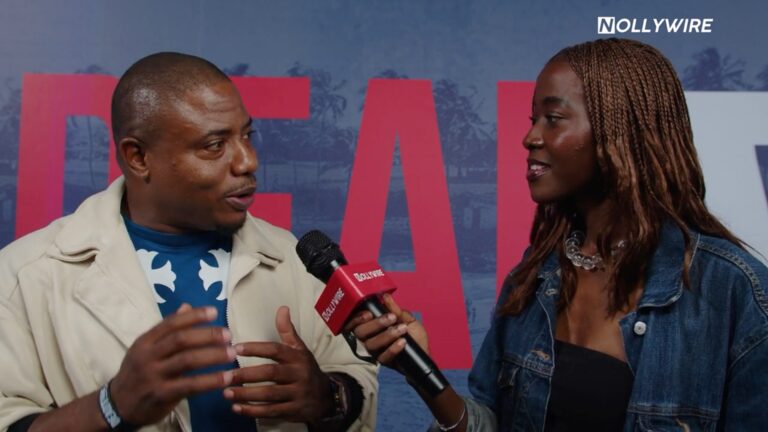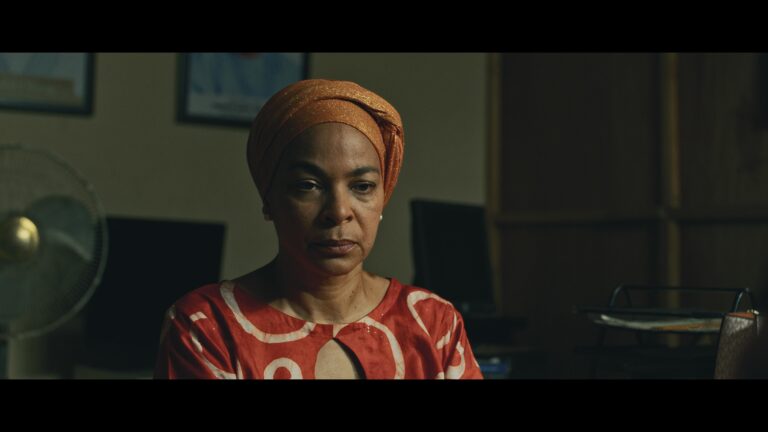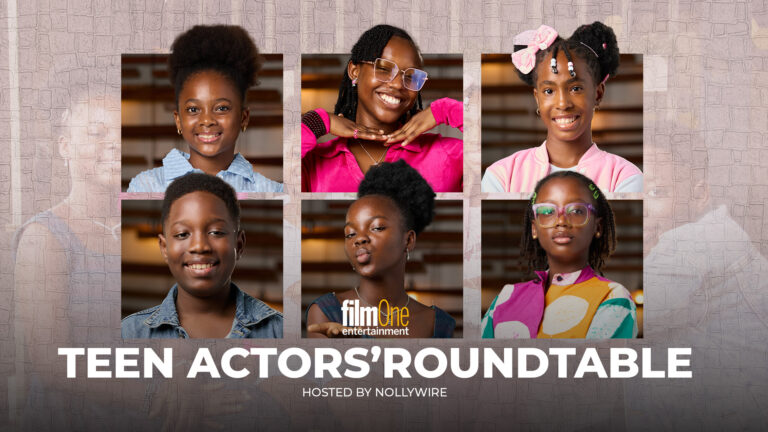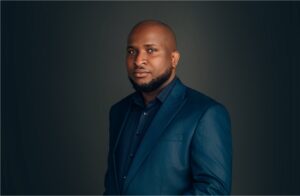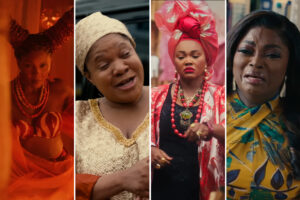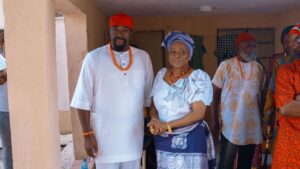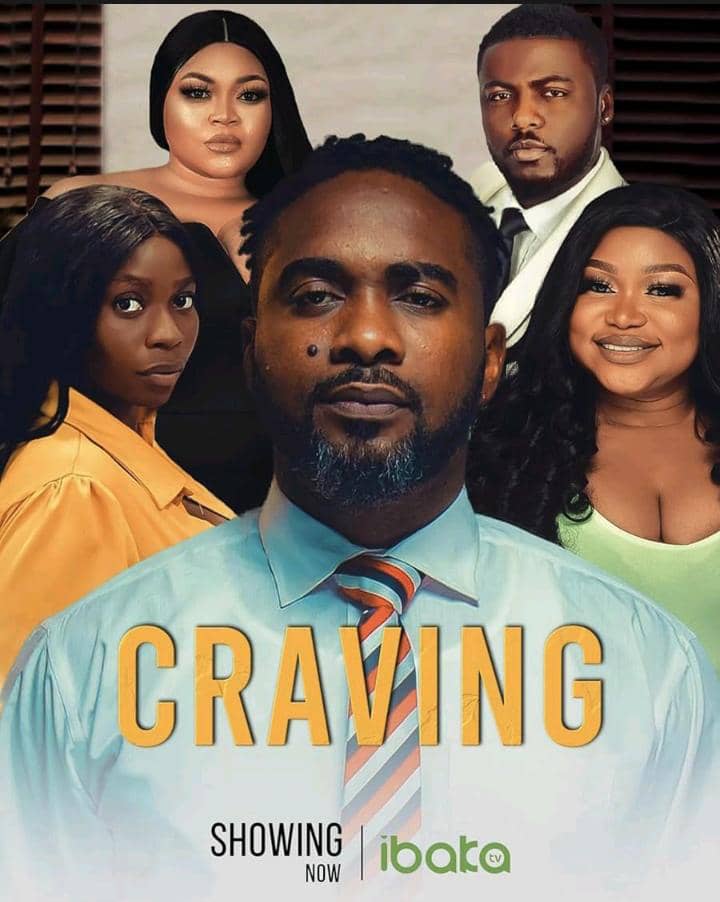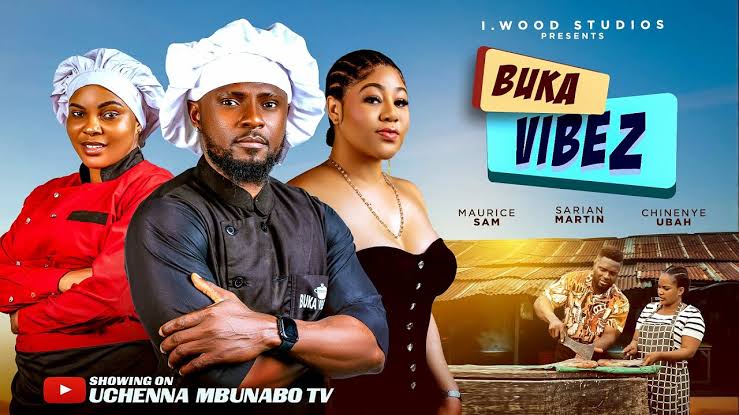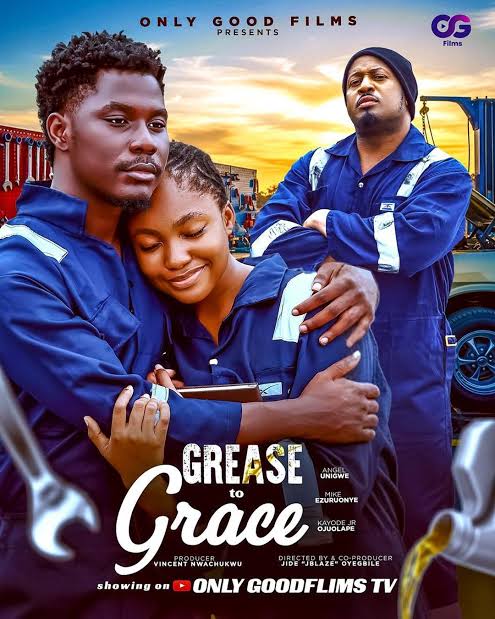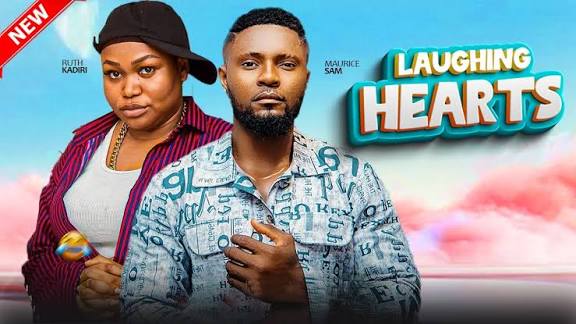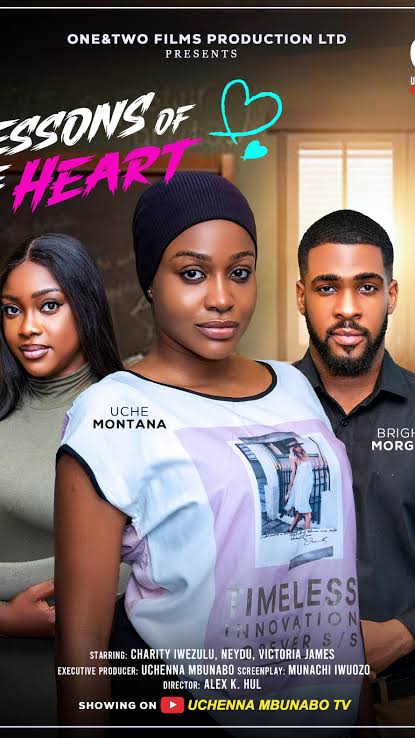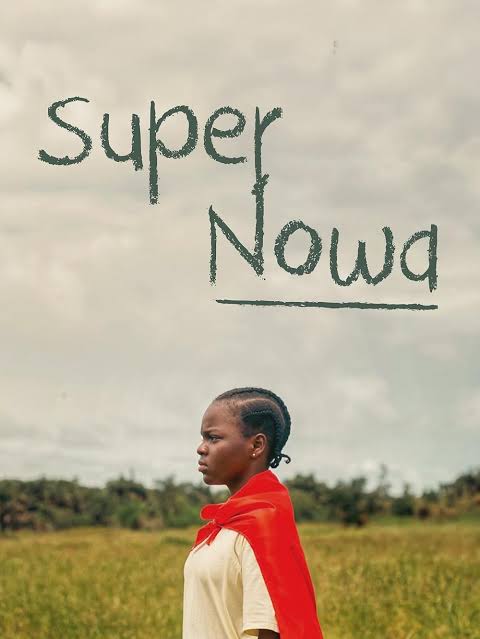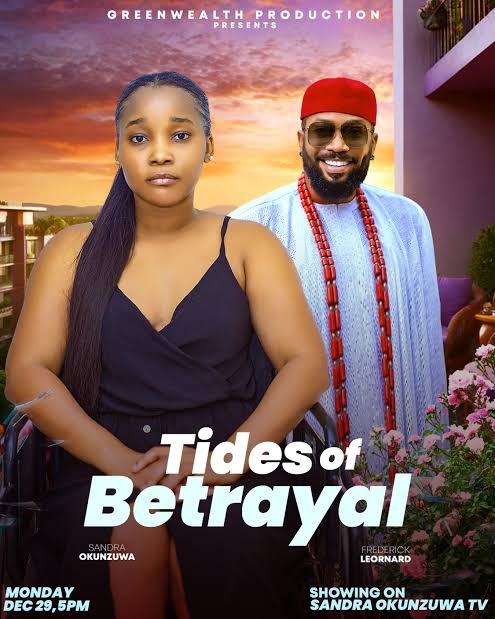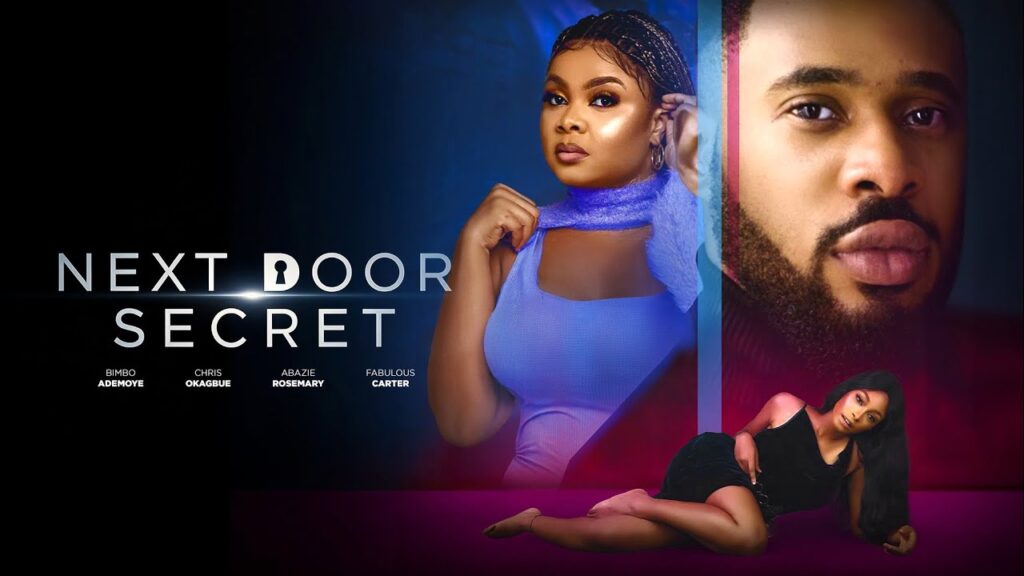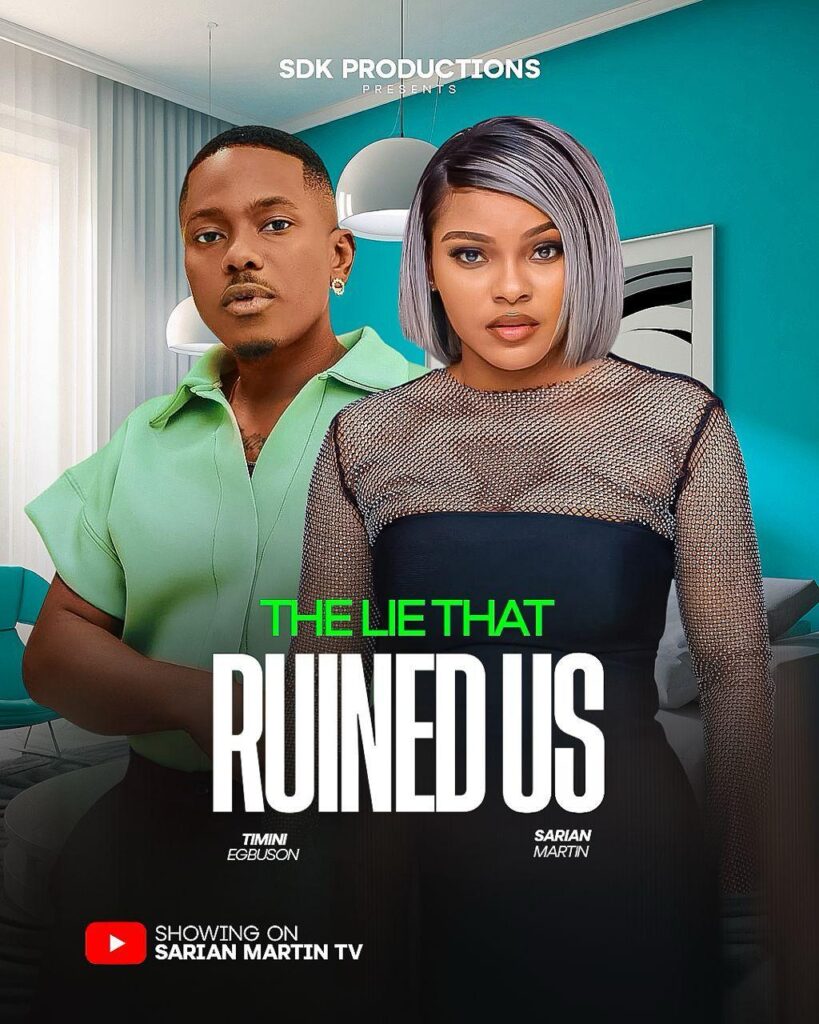Sarah Stella Kwaji’s ‘Out in the Darkness’ is a public intervention. The drama follows Bolu (played by Kehinde Bankole), a new mother drowning in postpartum darkness. With each passing day, vivid hallucinations pull her deeper, pushing her to the edge. Dismissed by doctors, silenced by stigma, and spiralling alone, she and her baby teeter on the brink of danger. As her husband and mother fight to save her, ‘Out in the Darkness’ exposes the raw, unspoken battles of maternal mental illness in Nigeria, a gripping yet hopeful call for awareness, support, and resilience.
Shot in Nigeria and premiered internationally to acclaim, the film tells the story of Bolu (played by Kehinde Bankole), a new mother consumed by postpartum psychosis. Her descent into mental chaos is met with silence, stigma, and helplessness, not just from the medical system, but from society itself. With a fragile grip on reality and an infant in her arms, Bolu’s suffering becomes a terrifying metaphor for the countless Nigerian women facing mental illness in the shadows.
For Kwaji, the story was personal, even if not directly autobiographical. “I haven’t experienced postpartum depression myself,” she shares, “But I’ve read so many stories, I know women who have, and I realised how under-discussed and misunderstood it is.” The more she researched, the more she uncovered just how deep the silence runs. “This story is not just about postpartum depression; it’s about psychosis. It goes further than people think.”
She wanted the film to function as both a mirror and a guide: showing audiences the early signs of maternal mental illness, encouraging them to recognise when a loved one may be crying for help, even when they say, “I’m fine.” “Sometimes, when someone says they’re okay, they’re not,” she says. “That could be an early cry for help.”
‘Out in the Darkness’ also points audiences toward support — however limited — that exists within Nigeria. “There are mental health organisations here,” Kwaji insists. “Whether it’s maternal or not, there are NGOs and agencies doing great work. People need to know where to go. They need to understand that help is available, that you can go to a hospital, speak to a therapist, talk to someone — you’re not alone.”
Yet part of what makes that help inaccessible is the societal culture of shame. “People who go through mental health issues in Nigeria are often secluded,” she says. “They’re afraid to speak out. They worry: ‘What will people say?’ ‘How will they look at me?’ We need to break that fear. We need to let people know there’s a support system and that it’s okay to ask for help.”
The message resonated with her cast as well. Deyemi Okanlawon, who plays Bolu’s husband, a man watching his partner mentally unravel, brings his own lived experience into the role. “As a father of three, I’ve seen what motherhood can do to a woman’s body and mind,” he shares. “My wife went through it. And for a husband, it’s hard. You want to be strong; you want to hold it together, but watching the person you love deteriorate is heartbreaking.”
He hopes viewers walk away with more than just sympathy for the mother. “We always focus on what the woman is going through and rightly so but think about the man too. He’s trying to be a pillar, holding up the household while silently falling apart. Men go through their own kind of postpartum too; I joke and call it ‘post-financial depression’. It’s not easy.” He adds, “As men, we also need to heal our own traumas so we don’t pass them on to our children. The psychological weight of parenthood isn’t talked about enough for either gender.”
Darasimi Nadi, one of the younger actors in the film, admits she didn’t understand the script at first. “I was like, is she just crazy? What’s wrong with her?” she laughs. But once on set, it hit her: “It was disheartening to watch. Seeing the character not want to touch her baby — it broke me. And it made me realise that when someone is going through mental health struggles, they don’t need you to be angry. They need you to be kind, to be patient.”
That compassion is echoed by Charles Born, who doesn’t shy away from sharing how he’s dealt with emotional lows himself. “I’ve been in dark places. What helped me was my faith in God, my mum, and my circle of friends. You need people around you who don’t judge, who just show up for you.” For him, support isn’t about solving; it’s about presence. “Sometimes, just shut up and listen. People don’t need answers. They need space to be heard.”
Fadekemi Olumide-Aluko reflects on the emotional toll of motherhood through her own experience. “My kids are grown now, but I remember how hard it was,” she says. “We’re expected to be everything: mothers, businesswomen, partners. But no one talks about what it costs us mentally. And if we do talk, we’re told to suck it up.” She is proud that Nollywood is finally creating space for these conversations. “Where would we be without mothers?” she asks. “It’s about time we honoured them by telling the whole truth.”
With ‘Out in the Darkness’, Kwaji are starting a conversation. One that Nigerian society desperately needs. The film challenges the myths of perfect motherhood, highlights the dangers of silence, and urges us to see, truly see, the women who are suffering behind closed doors.
“I made this film to help people realise they’re not alone,” Kwaji says. “If even one person watches it and decides to speak up or seek help, then we’ve done something worthwhile.”
Of the many women who are suffering quietly behind the mask of “I’m fine”. In telling Bolu’s story, Sarah Stella Kwaji and her cast are saying to every woman who has ever felt invisible in her struggle: we see you. And that might just be where healing begins.

